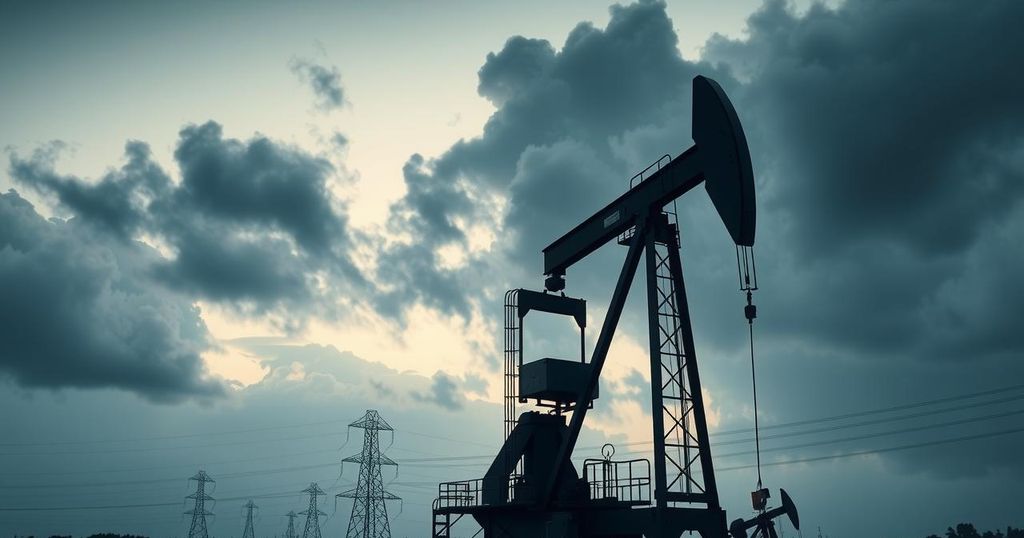Iraq’s energy sector is at risk following the end of its exemption from US sanctions on Iranian gas imports. The country relies on Iranian gas for about 40% of its electricity supply. Efforts are underway to diversify energy sources and develop new projects, including collaboration with Turkmenistan and investments in solar energy. The situation poses a significant challenge for Iraq’s government amid pressure from the United States.
Iraq is facing a potential energy crisis as United States President Donald Trump has ceased its exemption from sanctions related to Iranian gas and electricity imports. This executive order intends to hinder Iraq from utilizing the US financial system for evading those sanctions while preventing Gulf nations from acting as transit points for Iranian energy. These sanctions are part of a comprehensive initiative to reduce Iran’s oil exports, including shipments to China, under the newly reinstated “maximum pressure” campaign.
In light of impending sanctions, Iraq has been preparing by hastily signing contracts with various companies and countries to bolster its energy resources. Bassem Naghimash, a member of the Iraqi Parliament’s Oil and Gas Committee, highlighted that the lack of diverse gas sources amid the ongoing Iranian gas crisis is a major concern. He indicated that though options from countries like Jordan, Turkmenistan, and Qatar have been proposed, the government faces significant constraints in financing domestic gas projects.
Kazem Al-Touki, another committee member, remarked on the feasibility of establishing Qatar as a gas supplier; however, he noted that infrastructure limitations and US sanctions impeding Iranian-owned intermediaries presented considerable challenges. Al-Touki emphasized that the situation extends beyond sanctions against Iran, as it has broad implications for Iraq’s energy security.
Economic expert Nabil Al-Marsoumi warned of dire consequences for Iraq’s power sector if sanctions are enforced, as the electrical grid currently relies on Iranian gas for approximately 40% of its power supply, equating to around 8,000 MW. Iranian economic expert Saeed Shavardi acknowledged the essential role of gas trade in Iraq’s electricity generation, stressing that the Iraqi government will inevitably face significant pressure from the US regarding these sanctions.
To address long-term energy needs, Al-Marsoumi suggested establishing LNG import infrastructure at Al-Faw port and investing in solar power projects, which could add around 3,000 MW to the national grid over the next three years. He also mentioned that Turkmenistan has the potential to supply about 4,000 MW of electricity, although this would not fully meet Iraq’s requirements.
Iraq has initiated regional electricity interconnection projects and signed a gas import agreement with Turkmenistan in August 2023. The electricity minister stated that these imports could reduce dependence on Iranian gas by 50%, although domestic gas development would take an estimated 3 to 5 years to complete.
As a part of its rapid energy development plan, France’s TotalEnergies has signed an agreement to construct a 1,000-MW solar power plant, with an investment of $820 million, in collaboration with the Basra Investment Commission. This project will unfold in the Artawi area over 36 months across four phases, contributing to the electricity grid in the Basra region. TotalEnergies has expressed its commitment to deploying modern and advanced technologies in its initiatives, per the statement from Commission Director Alaa Abdul Hussein.
In summary, Iraq faces a significant threat to its energy sector due to US sanctions on Iranian gas and electricity imports, which could lead to a potential crisis. The government’s efforts to diversify gas sources face challenges related to infrastructure and lack of funding. Long-term energy solutions, including LNG imports and solar projects, are being developed, though full implementation and reduction in reliance on Iranian gas may take several years.
Original Source: www.intellinews.com




